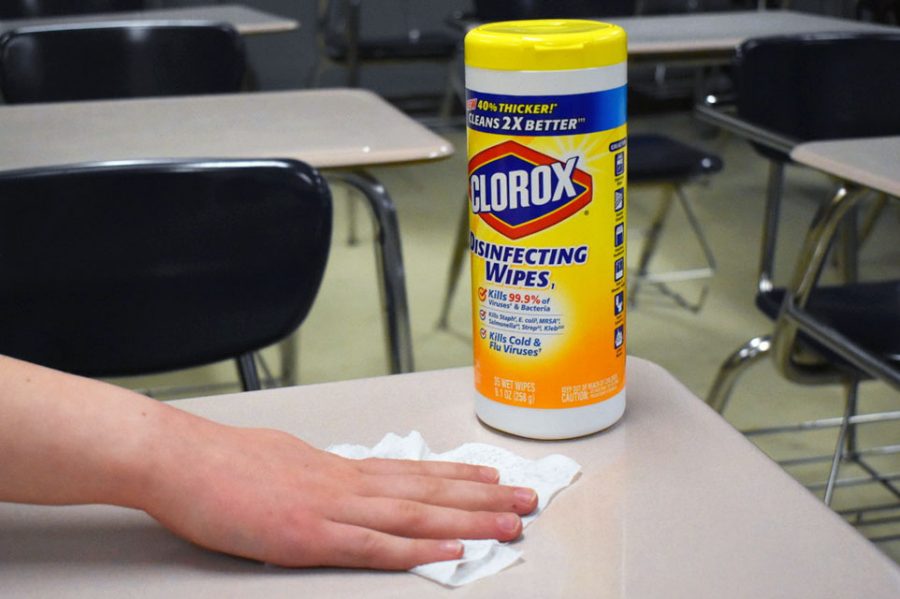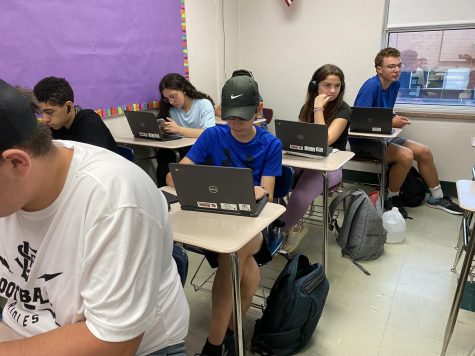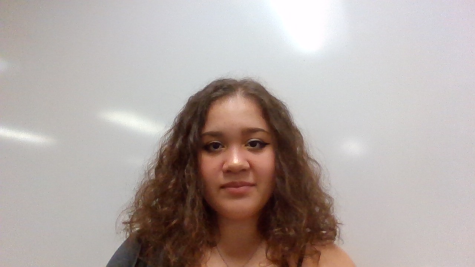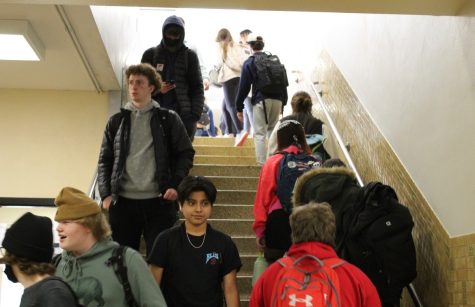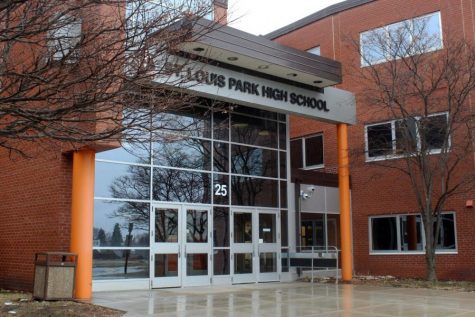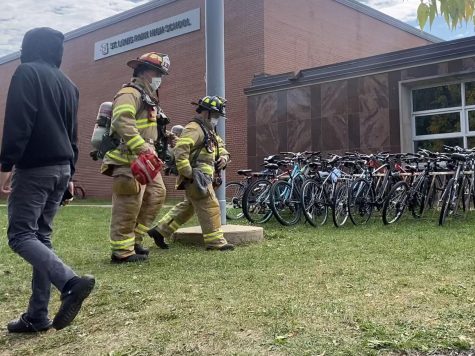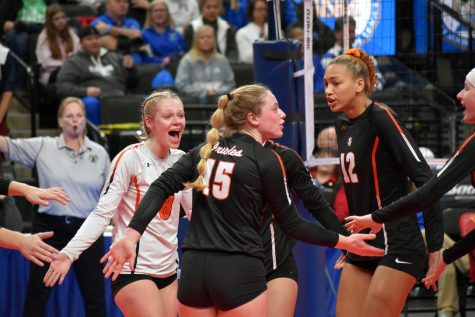Park health officials, administration develop plan for handling COVID-19
District stocking schools with emergency supplies
Photo illustration by Kaia Myers. A desk is sanitized with a Clorox disinfecting wipe March 11. Park purchased many sanitizing products, soap and tissues to help prevent the spread of COVID-19.
March 12, 2020
As COVID-19 spreads, Director of Communications and Community Relations Sara Thompson said the district is outlining a plan to respond to COVID-19, should it spread to Park schools.
“The district has coronavirus response plans in draft form. It’s not available to the public for public release, but it’s something we’re working on,” Thompson said. “We refer back to what we have experienced in the past and to advice from the CDC, Minnesota Department of Health and the county.”
Thompson said the district is considering nuances of how the virus is spread in order to plan more specifically what measures need to be implemented should St. Louis Park be affected.
“The next phase we’ll be working on, assuming that this takes the next level, is ‘what do we need to consider next? In terms of, do we need to talk about limiting public events? Do we need to talk about school functions?’ So, we’re starting to have those conversations now,” Thompson said.
Thompson said the first part of the plan is prevention of contracting the disease through general hygiene practices.
“The very first step is really prevention. As of right now, cover your coughs, cover your sneezes, stay home if you’re sick,” Thompson said. “We’ve deployed additional resources into all of our schools, such as additional hand sanitizer and making sure all of our restroom facilities are fully stocked with soap.”
According to Principal Scott Meyers, the school has been working to ensure there are supplies including paper towels and soap in bathrooms. Additionally, the district has stocked schools with emergency cleaning supplies, such as sanitizing wipes.
“Students are noticing that supplies are limited in restrooms, things like that tell either a custodian directly or let us know here in the main office,” Meyers said.
The very first step is really prevention. As of right now, cover your coughs, cover your sneezes, stay home if you’re sick. We’ve deployed additional resources into all of our schools, such as additional hand sanitizer and making sure all of our restroom facilities are fully stocked with soap.
— Sara Thompson
Meyers said the school has planned a deep clean of the school with the use of bleach products. Deep cleans have been used in the past as a response to the flu, and the last deep clean was over winter break, according to Meyers.
“We always prioritize common areas. You know student based areas. And then we get to some of the offices,” Meyers said.
According to Thompson, Minnesota school administrators have weekly calls with the Minnesota Department of Health, who have not suggested closing school due to the virus as of March 4.
“We have weekly phone calls with the Minnesota Department of Health. So there’s a group of administrators who participate in weekly calls and what we’re hearing from the Minnesota Department of Health right now, is that they’re making no recommendations for close,” Thompson said.
According to band director Steven Schmitz, school trips, including the band trip to Chicago over spring break, are likely suspended for the rest of the year.
“I got pulled into a series of meetings during first hour, they are likely suspending travel in the district for the rest of the school year. Chicago will very likely not happen,” Schmitz said. “If you are not a traveler, know there is a lot of sadness in the room… Just know this is happening to everyone, around the country and around the world and there is nothing we can do about it.”
Meyers said he hopes conversations surrounding the virus stay factual to avoid the spread of misinformation.
“Communication about this should be really fact-based because there’s some big implications like closing school if we didn’t have to would be really unfortunate,” Meyers said.



